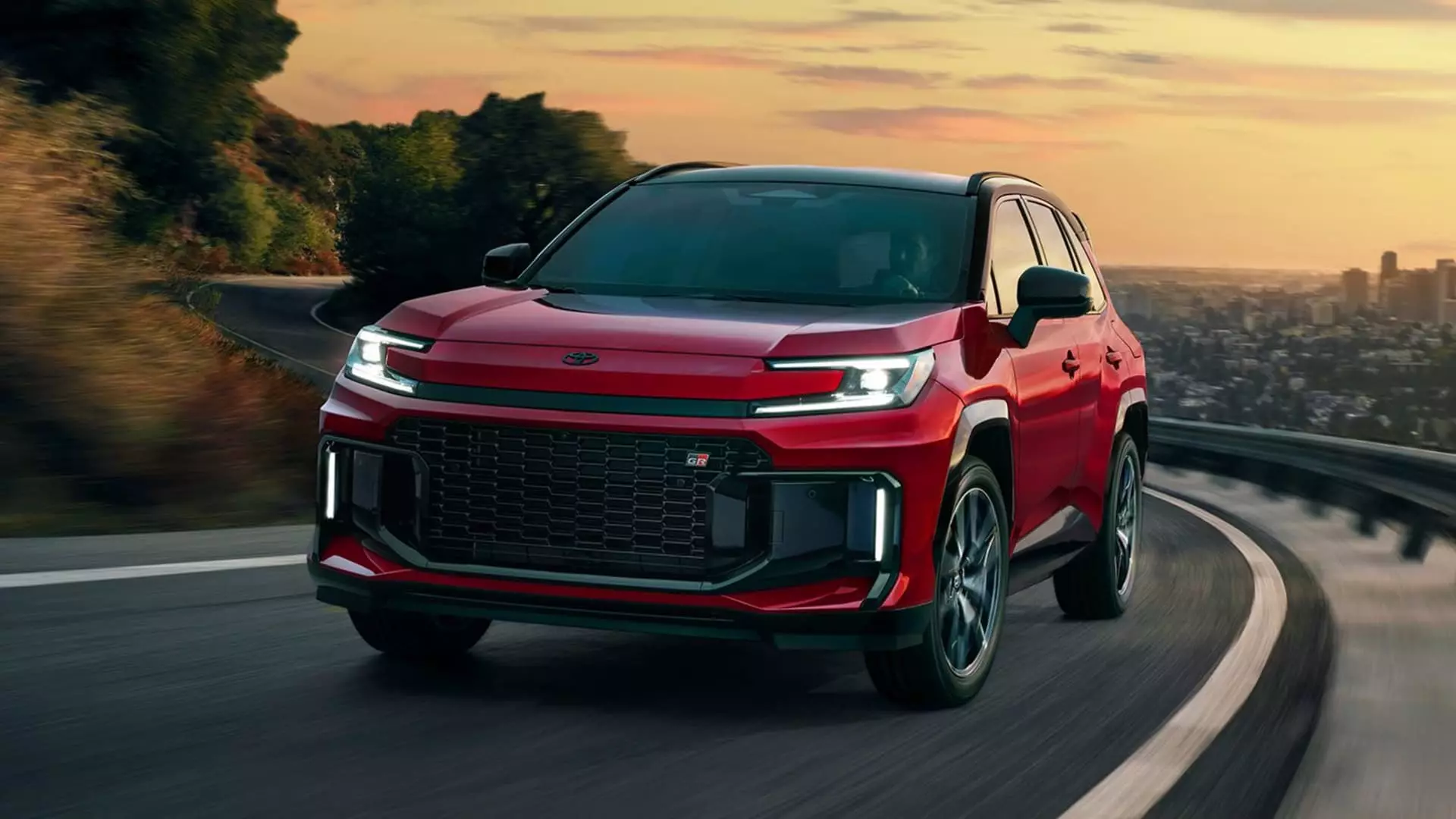In a bold and necessary step towards sustainable driving, Toyota’s announcement of the 2026 RAV4 being solely a hybrid model is a game-changer for the automotive landscape. As the best-selling SUV in the United States, this decision to forgo gas models in favor of hybrids isn’t simply a marketing stunt; it represents a significant pivot toward embracing environmental responsibility while meeting the consumer demand for efficiency. The automobile industry is at a pivotal crossroads where innovation must balance consumer habits and ecological responsibility—and Toyota appears to be steering towards greener pastures.
The establishment of the RAV4 as an exclusively hybrid model speaks volumes. By integrating a 2.5-liter four-cylinder engine with advanced hybrid technologies, Toyota not only simplifies its model lineup but also escalates its efforts to comply with tightening fuel economy regulations. This move is more than just a phase in automotive engineering; it is a testament to what leadership in the market looks like. It positions the RAV4 hybrid ahead of its competitors who are still grappling with the transition to electrification.
Consumer Demand Meets Corporate Strategy
The rationale behind Toyota’s hybrid-only approach stems from a clear indication of market demand. As noted by David Christ, head of the Toyota brand in North America, the hybrid model has already gained traction, with a staggering 44% of last year’s RAV4 sales coming from hybrids alone. This overwhelming consumer acceptance should not be ignored; it signals a definitive vote for eco-friendliness without sacrificing performance. Unlike many automakers that are racing toward all-electric models, Toyota is observing the temperate response of consumers who are still attached to the traditional internal combustion engine but are willing to embrace a hybrid solution.
Herein lies a critical perspective: while the automotive industry scrambles to push all-electric solutions, it risks alienating those who still appreciate the versatility of hybrids. The challenge for many automotive brands is not merely to produce an electric vehicle but to engage consumers whose driving habits may not align with purist electric ideals. Toyota’s decision represents a pragmatic response to this dilemma. By securing its hybrid offerings, the company maintains its relevance without dismissing the existing market base.
The Energizing Impact of Hybrids
It’s crucial to dissect the implications of Toyota’s strategy further. The dominance of hybrids could energize not only sales but also a collective inclination toward eco-conscious consumer behaviors. The stark statistics are telling: hybrid models, along with plug-in variations, accounted for nearly 20% of new car sales last year in the U.S. This growing popularity is not solely an automotive phenomenon but indicative of shifting social sentiments toward sustainability.
With this in mind, the role of the automaker transcends selling vehicles. They become pivotal players in driving societal change. The shift to a hybrid model can influence consumer perceptions positively, making green technology more accessible and acceptable. As fuel prices fluctuate and climate change remains an undeniable crisis, the hybrid model, led by RAV4, may strategically position itself as a transitional vehicle—one that eases consumers into a greener future without jolting them away from their familiar driving experience.
Facing Challenges and Tariffs
However, challenges loom as Toyota navigates trade uncertainties inherent in the current political climate. The ongoing tariffs imposed could complicate the supply chain, with concerns about production shifting from overseas plants to domestic sites. While the company remains optimistic about increasing production in Kentucky, there’s a looming concern that these tariffs may stifle growth in a competitive landscape. The entire operation is a delicate balancing act, and any misstep could deter the robust momentum the RAV4 has built over the years.
Mark Templin’s insights about Toyota’s strategic planning underlines a crucial notion: in an industry filled with uncertainty, adaptability is paramount. While tariffs can sideline operations and complicate pricing structures, the adaptability Toyota demonstrates could very well position them ahead in sales, especially with the RAV4 leading the pack.
Toyota’s hybrid-centric lineup, while innovative, poses a compelling question about the future of automobile sales in a world demanding more from industries regarding sustainability and customer preference. The shift signifies a fruitful conception where technology meets societal responsibility. However, it remains to be seen whether this hybrid revolution can truly accelerate against the backdrop of all-electric aspirations that still dominate discussions in the automotive space.

